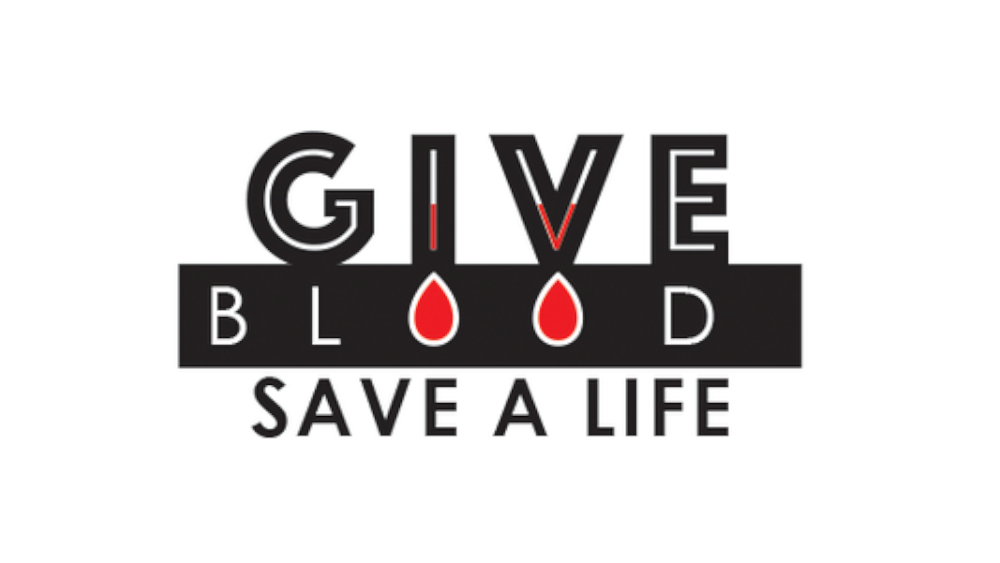
The need for blood donations has taken on new urgency due to Covid-19 and the increased use of life-saving convalescent plasma therapy. Individuals who have recovered from Covid-19 will get their chance to help with the shortage by participating in an upcoming blood drive at Fitzgibbon Hospital. Those who do will not only be helping save lives, they’ll receive a treat of their own: a free, limited-edition Kansas City Chiefs T-shirt.
Donations of blood, a crucial tool in the fight against many life-threatening conditions, are at historic lows because of the pandemic. The demand for blood typically requires 4,000 donations per week just to treat hospitalized patients in the west-central Missouri region.
Community Blood Center, which will hold a blood drive from 9 am to 2 pm on Tuesday, Dec. 15 at Fitzgibbon Hospital, is specifically seeking donations from patients recovered from Covid-19 who are willing to donate their plasma. Blood center personnel say that all blood donations are needed, but they are in particular need of plasma for use in convalescent plasma therapy. Anyone who has recovered from the disease or who has had a positive Covid-19 antibody test are strongly encouraged to participate.
One such individual, Amy Sarbaugh, RN/BSN, Utilization Review Nurse at Fitzgibbon Hospital, has already donated her plasma in another community and wants to encourage others to donate. Sarbaugh tested positive for Covid-19 in October after having provided care since March to Covid-19 positive patients as a frontline worker, providing tests, screenings and care to patients requiring care in the hospital. She was exposed to Covid-19 while on personal time away from work.
“Covid-19 really knocks you down and impacts your life. I was fortunate to not have had respiratory symptoms, but I had a difficult time with energy and headache for about a week,” said Sarbaugh. “I see Covid-19 every day, and I have seen how many patients are helped by convalescent plasma. I thought if I could make a difference in someone else’s life, then I will help since I have antibodies for the disease having successfully overcome it.”
Convalescent plasma is an experimental therapy which has been proven effective in many cases for treating Covid-19 because it introduces Covid-19 antibodies to a patient stricken with the illness. As a person fights the disease and recovers, antibodies become present within the blood stream. These antibodies can be transferred through donated plasma and then utilized by others through blood transfusions in a process known as convalescent plasma therapy, which was given Emergency Use Authorization earlier this year. With the increased number of hospitalizations from Covid-19 in our area, the need for plasma donors is at an all-time high.
Kim Peck, Senior Executive Director of Community Blood Center outlined the challenges their organization is having in meeting the needs of the communities they serve.
“The entire foundation of blood donation has changed. The convenience factor of donating while at work, school, or after a religious service is almost completely gone. Instead, we have to rely on people taking the extra step of proactively seeking out a place to donate. So far, that isn’t happening at the level we need,” said Peck. “Under normal circumstances, announcing a blood emergency would create a short-term increase in blood donations, but this will not solve this particularly difficult shortage long-term. This is an incredibly challenging time for our communities.”
Appointments to give are strongly recommended, and walk-ins will only be accepted as capacity allows. To make an appointment to donate, or to learn of available dates, visit https://donate.savealifenow.org/donor/schedules/zip or call (877) 468-6844. All donors will receive a limited edition, long-sleeve Kansas City Chiefs shirt. All donors will enter the hospital through the main entrance and will be required to wear a face covering. To donate convalescent plasma, individuals should provide evidence of either a positive Covid-19 test or positive antibody test, in paper form at the time they present for donation. Documentation must include their full name, testing facility or physician, and the date of the positive test.
Call out box
Factors contributing to the shortage of blood donations include:
Factors contributing to the shortage include:
- High schools and colleges normally account for 20,000 donations each school year, and we’re missing nearly all of these first time donors this fall.
- Remote learning is impacting both parents and youth donations as families try to balance work and school.
- Office workers are not returning at high rates.
- Utility, hospital and government workers are not donating at the same frequency as they were pre-COVID-19.


